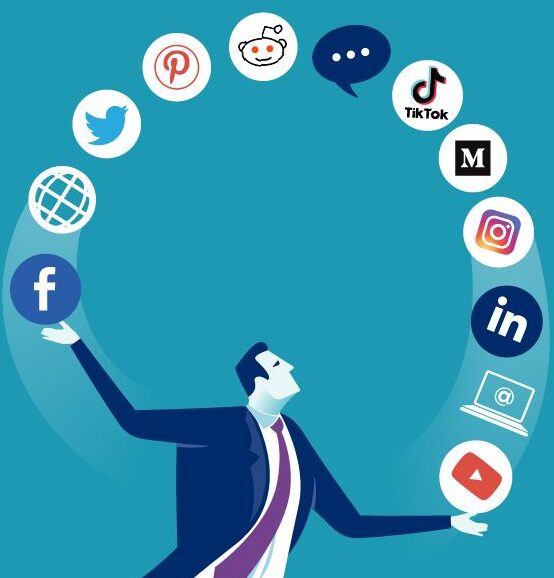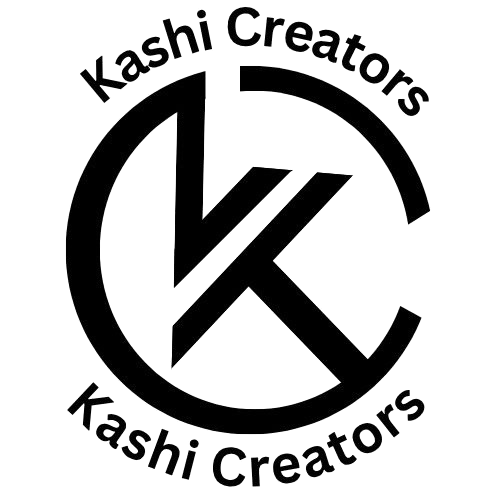my blog

The Power of Content Marketing: Why Every Brand Needs a Content Strategy
In today’s fast-moving digital landscape, advertising alone is no longer enough. People are tired of being sold to — they want value, connection, and trust. That’s where content marketing comes in. Content marketing isn’t just a buzzword. It’s one of the most powerful tools brands can use to build relationships, boost visibility, and drive long-term growth. Whether you’re a startup, a local business, or a global brand, you need a content strategy to stay relevant and competitive. 🧠 What is Content Marketing? Content marketing is the process of creating and sharing valuable, relevant, and consistent content to attract and retain a clearly defined audience — with the ultimate goal of driving profitable customer action. This content can include: The difference between content marketing and traditional advertising is simple: Ads push a product. Content pulls the customer in by providing value first. 💥 Why Content Marketing Matters More Than Ever Here’s why content marketing is no longer optional — it’s essential: 1. ✅ Builds Trust and Credibility People don’t buy from brands they don’t trust.Consistent, high-quality content helps position you as an authority in your industry. Whether you’re sharing tips, case studies, or behind-the-scenes insights — valuable content makes people feel confident doing business with you. 2. 🔍 Improves SEO and Online Visibility Search engines love fresh, keyword-rich, helpful content.The more quality content you publish: 3. 🧲 Generates and Nurtures Leads Content is your silent salesperson. You’re not interrupting their day with ads — you’re becoming part of their journey. 4. 🧠 Educates Your Audience Buyers want to make informed decisions.Great content answers questions like: By educating your audience, you’re removing barriers to purchase. 5. 💬 Boosts Engagement and Brand Awareness Entertaining and informative content naturally gets liked, shared, and commented on.This helps: Content is the fuel for your social media, email marketing, and even paid ads. 6. 💸 Cost-Effective Long-Term ROI Unlike ads that stop working when your budget runs out, a single blog post can continue generating leads and traffic for years.According to research, content marketing costs 62% less than traditional marketing and generates 3x more leads. 🧱 What Makes a Great Content Strategy? To truly harness the power of content marketing, you need a content strategy — not just random posts. Here’s what your strategy should include: 🎯 1. Clear Goals Are you aiming to build awareness, generate leads, improve SEO, or all three?Define what success looks like. 👥 2. Defined Audience Who are you talking to? What are their pain points, interests, and search habits? 🧩 3. Content Types and Channels Choose formats (blogs, reels, videos, case studies) and platforms (your website, YouTube, Instagram, LinkedIn) based on your audience. 🗓️ 4. Content Calendar Plan your content in advance — including topics, publishing dates, and promotional channels. 📊 5. Performance Tracking Use tools like Google Analytics, HubSpot, or SEMrush to measure what’s working and adjust accordingly. 📌 Examples of Powerful Content Marketing in Action These brands don’t just sell — they inspire, educate, and entertain. ⚠️ Common Content Marketing Mistakes to Avoid 🧠 Final Thoughts: Content is the Foundation of Modern Marketing Today, customers have more choices and less patience. They want to engage with brands that understand them, educate them, and connect with them authentically. That’s why every brand needs a content strategy. Whether you’re just getting started or refining your current efforts, now is the time to invest in content — not just as a marketing tactic, but as a core business strategy. Need Help Creating Your Content Strategy? 📞 Let our expert team help you craft a strategy that turns browsers into buyers and readers into loyal fans.👉 Contact us today for a free content audit! Would you like this article repurposed into:

The Ultimate Guide to Digital Marketing for Small Businesses
In today’s fast-paced, digital-first world, small businesses can no longer rely on word-of-mouth or walk-in traffic alone. Whether you’re a local shop, a service provider, or an eCommerce brand, digital marketing is essential to survive—and thrive. But where do you start when you’re short on time, budget, and expertise? This ultimate guide is designed to walk you through everything you need to know about digital marketing for small businesses, in simple and practical terms. 🔍 What Is Digital Marketing? Digital marketing refers to promoting your business through online channels like websites, search engines, social media, email, and mobile apps. The goal? To reach more customers, build brand awareness, and drive sales. Unlike traditional marketing (TV, newspapers, billboards), digital marketing is: 📈 Why Is Digital Marketing Crucial for Small Businesses? Here’s what digital marketing helps you achieve: You don’t need a massive budget—just the right strategy. 🧱 Core Pillars of Small Business Digital Marketing Let’s break down the key components you should focus on: 1. A Professional Website Your website is your digital storefront. It should be: 💡 Pro Tip: Use platforms like WordPress, Wix, or Shopify if you’re starting out. 2. Search Engine Optimization (SEO) SEO helps your business show up in Google searches organically. Key areas include: 📍 Example: A local plumber in Delhi ranking for “plumber near me” thanks to local SEO. 3. Pay-Per-Click Advertising (PPC) With PPC (like Google Ads or Facebook Ads), you pay only when someone clicks your ad. It’s ideal for: 💸 Start with a small daily budget and test which ads perform best. 4. Social Media Marketing Your customers are already scrolling. Meet them there. Platforms like Facebook, Instagram, LinkedIn, and YouTube allow you to: 📅 Tip: Use a content calendar to post regularly. 5. Content Marketing Create useful content that educates or entertains your audience: 🎯 The goal is to attract and retain customers without being overly promotional. 6. Email Marketing Email is one of the highest-ROI channels in digital marketing. Use it to: 📧 Use tools like Mailchimp or Brevo (formerly Sendinblue) to automate campaigns. 7. Online Reviews and Reputation Management Before buying, most people check reviews.Encourage happy customers to leave Google, Facebook, or Yelp reviews.Respond to both positive and negative reviews professionally. 🌟 People trust peer reviews more than ads. 📊 How to Create a Simple Digital Marketing Plan Here’s a step-by-step roadmap: 🧠 Common Mistakes to Avoid 💡 Final Thoughts: You Don’t Have to Do It All Digital marketing can seem overwhelming—but you don’t have to do everything at once. Start small, stay consistent, and focus on what brings results.Or better yet, partner with a digital marketing agency that understands small business needs and can create a custom plan tailored to your goals. Need help growing your business online? 👉 Let our digital marketing experts create a strategy just for you.📞 Contact us for a free consultation today.

AI vs Human Creativity – Can Machines Replace Marketers?
In the age of artificial intelligence, the marketing world is undergoing a major transformation. AI tools can now write content, design creatives, run A/B tests, and even suggest strategies based on data. This rapid evolution has sparked a pressing question: Can machines replace human marketers? The short answer: No — but they will change the way marketers work forever. 🧠 What AI Can Do in Marketing Artificial Intelligence has proven to be a powerful asset in modern marketing. Here’s what AI excels at: These capabilities save time, increase efficiency, and make marketing more data-driven. 🎨 The Power of Human Creativity While AI can analyze and generate, it lacks emotion, cultural context, and original thinking — all of which are vital in marketing. Human marketers bring: Marketing isn’t just about data; it’s about connection. And connection requires human insight. ⚖️ Human + AI: A Winning Combo Rather than seeing AI as a threat, marketers should view it as a partner. Imagine this: This collaboration enhances productivity and creativity — and lets marketers focus on what they do best: strategy, storytelling, and innovation. 🚫 What AI Can’t Do (Yet) Despite its power, AI has limitations: This means human oversight is not just helpful — it’s essential. 🔮 The Future of Marketing: Human-Led, AI-Enhanced Will AI replace marketers? No. But marketers who use AI will replace those who don’t. In the coming years, the most successful marketers will be those who: 📌 Final Thoughts AI is changing the game, but human creativity is still the heart of marketing. It’s not about man vs machine — it’s about man with machine. By blending the analytical power of AI with the imagination of human minds, we create smarter, faster, and more meaningful marketing. 💬 What’s your opinion? Can AI ever replace human creativity in marketing? Join the conversation below. 👇 Would you like this article formatted for LinkedIn, blog, or as a newsletter? I can also create a shortened version for Instagram captions or carousel posts.
